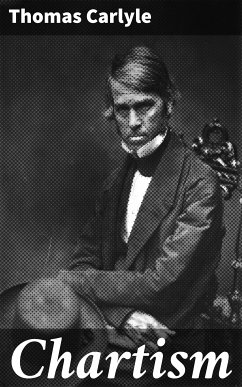
The Soul of London (eBook, ePUB)
Enriched edition. Capturing London's Essence: A Literary Portrait of a City in Transition
Kommentar: Ellington, Trevor / Redaktion: Good Press
Versandkostenfrei!
Sofort per Download lieferbar
1,99 €
inkl. MwSt.
Weitere Ausgaben:

PAYBACK Punkte
0 °P sammeln!
In "The Soul of London," Ford Madox Ford presents a captivating exploration of the city that pulsates with life, culture, and a myriad of human experiences. This work is a masterful blend of impressionistic prose and vivid imagery, drawing on the influence of early 20th-century Modernism. Ford's keen observations of London's urban landscapes, coupled with his lyrical language, provide readers with a vibrant tapestry of the city's social dynamics, architecture, and its ever-changing identity during a time of brisk industrial progress. Through a series of interconnected essays, Ford captures not...
In "The Soul of London," Ford Madox Ford presents a captivating exploration of the city that pulsates with life, culture, and a myriad of human experiences. This work is a masterful blend of impressionistic prose and vivid imagery, drawing on the influence of early 20th-century Modernism. Ford's keen observations of London's urban landscapes, coupled with his lyrical language, provide readers with a vibrant tapestry of the city's social dynamics, architecture, and its ever-changing identity during a time of brisk industrial progress. Through a series of interconnected essays, Ford captures not only the physical but also the spiritual essence of London, making it a seminal piece in urban literature. Ford Madox Ford, a pivotal figure in English literature, was deeply influenced by his own personal experiences and struggles within the turbulent social fabric of early 1900s Britain. His rich literary background, notably his association with the avant-garde literary movement, imbued him with a unique sensibility to reflect on themes of modernity and disillusionment. The intersection of his literary pursuits and experiences in London, intertwined with his friendships with fellow writers, inform the depth and resonance of this work. For those intrigued by the complexities of urban life and the philosophical inquiries it provokes, "The Soul of London" is an essential read. Ford's insights not only illuminate the quintessential spirit of London but also prompt readers to reflect on their own relationship with the cities they inhabit. This book is a profound exploration that transcends time, making it a valuable addition to any literary collection. In this enriched edition, we have carefully created added value for your reading experience: - A succinct Introduction situates the work's timeless appeal and themes. - The Synopsis outlines the central plot, highlighting key developments without spoiling critical twists. - A detailed Historical Context immerses you in the era's events and influences that shaped the writing. - An Author Biography reveals milestones in the author's life, illuminating the personal insights behind the text. - A thorough Analysis dissects symbols, motifs, and character arcs to unearth underlying meanings. - Reflection questions prompt you to engage personally with the work's messages, connecting them to modern life. - Hand-picked Memorable Quotes shine a spotlight on moments of literary brilliance. - Interactive footnotes clarify unusual references, historical allusions, and archaic phrases for an effortless, more informed read.
Dieser Download kann aus rechtlichen Gründen nur mit Rechnungsadresse in A, B, BG, CY, CZ, D, DK, EW, E, FIN, F, GR, H, IRL, I, LT, L, LR, M, NL, PL, P, R, S, SLO, SK ausgeliefert werden.













